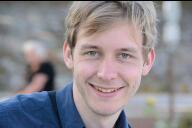MMGS Retreat 2021
Fotos

Nach zwei Corona-Jahren mit wenig menschlichen Kontakten bot der jährliche Retreat der MMGS-Mathematiker in der letzten Septemberwoche 2021 eine gute Gelegenheit, einen Teil davon nachzuholen. Das Organisationsteam, bestehend aus Sahana, Martina, Dennis und Johannes, konnte insgesamt 30 Doktoranden nach Brilon im Sauerland einladen, wo ein abwechslungsreiches Programm auf die Teilnehmer wartete.
Auf wissenschaftlicher Seite gab es einen Austausch mit dem ehemaligen Privatdozenten Dr. Thomas Timmermann, der in einer Diskussionsrunde viele Einblicke in seine schwierige Entscheidung gab, den akademischen Karriereweg zu verlassen. Außerdem hatte jeder Teilnehmer die Möglichkeit, einen Teil seiner Forschung oder eine spannende mathematische Kuriosität in einem Kurzvortrag vorzustellen. So kam auch der Spaß nicht zu kurz, dank Themen wie der unsinnigen Verteilung von Postleitzahlen in Deutschland oder dem Lösen von kubischen Gleichungen mit Origami-Faltkunst. Darüber hinaus wurden die rhetorischen Fähigkeiten der Teilnehmer unter der fachkundigen Anleitung von Rhetoriktrainerin Dr. Elisa Franz weiterentwickelt.
Die traumhafte Gegend um Brilon bot die Möglichkeit, viel Zeit in der Natur zu verbringen: So erklommen die Doktoranden die vulkanischen Felsformationen der Bruchhauser Steine und erkundeten die Bilsteinhöhle - eine große Tropfsteinhöhle, die Besuchern offensteht. In diesem Jahr konnten fast doppelt so viele Teilnehmer wie im letzten Jahr am Retreat teilnehmen und viele neue soziale wie auch mathematische Kontakte knüpfen.






















